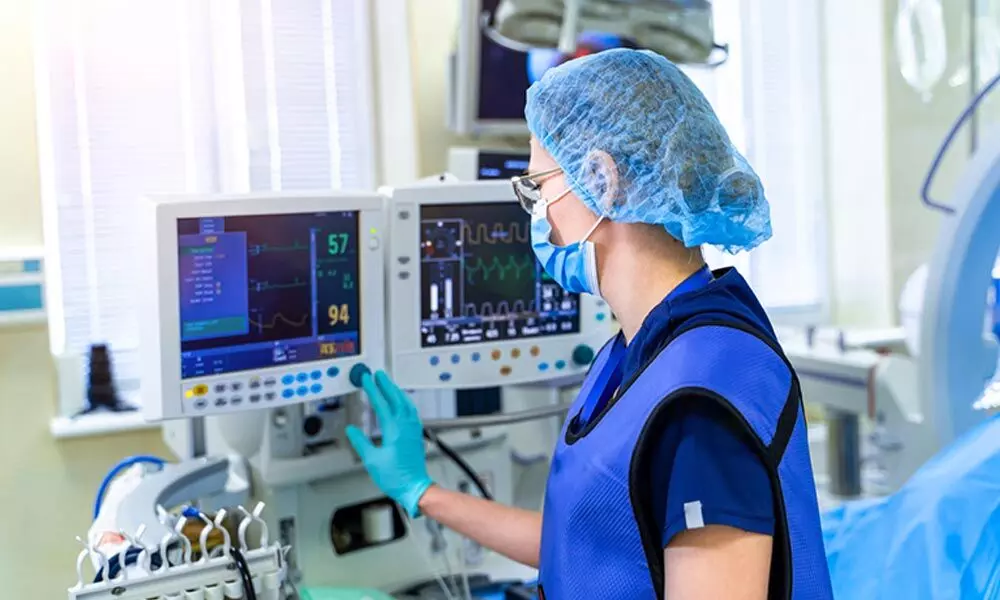A booster shot for medical devices industry
The new code will initially be a voluntary marketing code laying standards for promotion, marketing and sales of medical devices in the country. It prohibits distribution of gifts to doctors
image for illustrative purpose

As the characteristics of the medical device industry are different from the pharmaceutical industry, the medical device industry's demand for a separate marketing practices code is quite justified. However, all said and done, as the new code is a voluntary one, there are chances that some medical devices companies may try to circumvent it. So, the government should periodically review the new code, and if the industry does not follow it voluntarily, the government should make the new code mandatory
In what can be termed as a booster shot for the medical devices industry in the country, the central government has recently released the draft Uniform Code for Medical Device Marketing Practices, which will initially be a voluntary marketing code laying standards for promotion, marketing and sales of the medical devices in the country. Typically framed on the lines of the Uniform Code for Pharmaceutical Marketing Practices, the new law for medical devices will prohibit distribution of gifts or benefits to healthcare professionals (doctors), but will allow 'modest, appropriate educational items and brand recall items' worth less than Rs 1,000 occasionally. The new code for medical devices elaborates the kind of gifts that will not be allowed and those which can be permitted. No gifts, peculiarly advantages or benefits in kind shall be supplied, offered or promised to persons qualified to use, prescribe or supply medical devices, by medical devices company or any of its agents and gifts for the personal benefit of doctors and family members such as tickets to entertainment events shall not be offered or provided.
According to the draft code, the medical devices companies may occasionally provide modest, appropriate educational items to doctors that benefit patients or serve a genuine educational function for the doctors. Educational items can include, but are not limited to, product manuals and anatomical models. Hence, companies can supply medical education materials like books including e-books, and subscription to online portals (that can help download the materials for medical education and knowledge dissemination), anatomical models, bone/animal models, manuals and small products/educational material related to the training/Continued Medical Education (CME) in hospitals or in clinic training, to doctors or institutions. The new marketing code for medical devices industry also has provisions for the company to collaborate with the healthcare professionals and engage in activities including providing consulting services, conducting clinical studies and doing research, participate in company conducted training and education including continued medical education, product training's, business meetings, webinars etc. However, such engagements shall not be conditional upon any obligation for the doctors to use, recommend, promote or purchase products of the company.
Drafting a separate Uniform Code for Medical Device Marketing Practices in the country is a significant step by the government as there has been no separate marketing code for the medical device industry which has been growing by leaps and bounds in the country for the last some years. Presently, the Uniform Code for Pharmaceutical Marketing Practices is applicable to the medical devices industry also. By bringing out a new separate marketing code for medical devices, the government wanted to remove or eliminate inductive mechanisms to distort the medical devices market in the country. The new code has been drafted to ensure high ethical standards for the medical device industry much in the similar manner as has been done in the case of pharmaceutical industry by introducing the uniform marketing code in 2011. As the medical device industry is growing exponentially in the country, it is a big challenge for the regulators to ensure the ethical marketing of these devices.
It is an undeniable fact that the medical device marketing companies put artificially inflated high MRP with high trade margins to induce hospitals and retailers to push their products. Ideally, the MRP of these products should not be over four to five times of import landed price or ex-factory price (on which GST is charged initially). But the fact remains that instead of four or five times, the prevailing MRP goes up to an unbelievable 20 times. The medical devices industry has been demanding to the government for a separate marketing practices code different from pharmaceutical industry. As the characteristics of the medical device industry are different from the pharmaceutical industry, the medical device industry's demand for a separate marketing practices code is quite justified. However, all said and done, as the new code is a voluntary one, there are chances that some medical devices companies may try to circumvent it. So, the government should periodically review the new code, and if the industry does not follow it voluntarily, the government should make the new code mandatory.
(The author is freelance journalist with varied experience in different fields)

